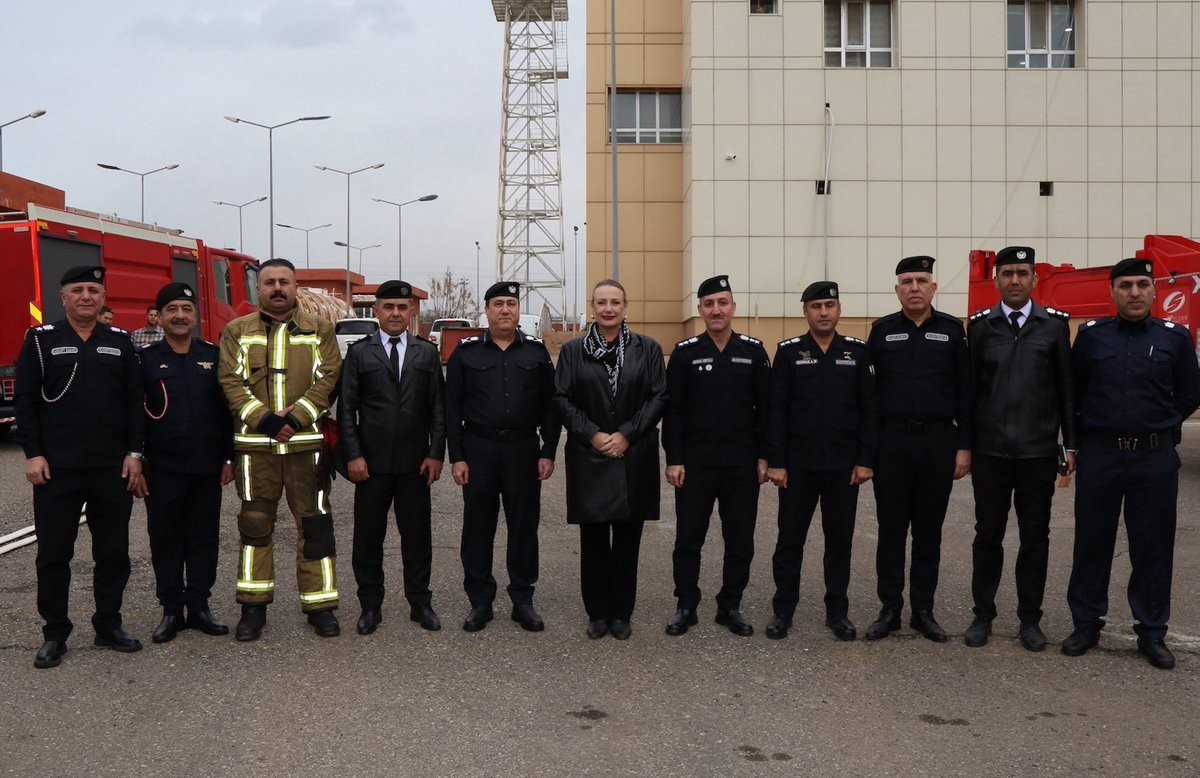Shanidar Cave was brought into the international spotlight after Netflix streamed the documentary Secrets of the Neanderthals on May 2. However, archeologists have been actively working in Shanidar near Barzan since 2015.
Read More: Netflix Documentary to Focus on Shanidar Cave
In 2011, Professor Graeme Barker from the University of Cambridge’s Department of Archeology was invited by the Kurdistan Regional Government (KRG) to re-excavate Shanidar. His team began work on the site in 2015.
Read More: Event Honors Shanidar Archeologists
“When I was invited by the KRG to plan new excavations in the cave, I was hugely excited,” Barker said at the Shanidar Platform event organized by Kurdistan Chronicle, the KRG, and the Kurdistan Film Commission on May 21.
“Our excavations began in 2015, and we’ve continued every year since then, except during the restrictions of Covid-19.”
The cave was originally excavated by the U.S. anthropologist Ralph Solecki in the 1950s.
Read More: Shanidar Cave: Unveiling the Ancient Mysteries of Kurdistan
“I couldn’t possibly excavate on the same huge scale that Ralph Solecki did, so the new work had to be very targeted,” Barker added.
“My family and I are very happy to learn about the important new work being done at Shanidar and the renewed attention paid to Neanderthals and the cave site,” John Solecki, Ralph Solecki’s son, told Kurdistan Chronicle.
At the event on May 21, Emma Pomeroy, a paleoanthropologist from Cambridge University’s Department of Archeologystated that she never “imagined that [she] would visit, let alone excavate Neanderthals remains here.”
“It was such an immense privilege to be able to work here in Kurdistan with this fantastic archaeology and among the wonderful Kurdish people, who have made us so very welcome.”
The archeologists are still working in the Kurdistan Region and come every year. During excavations, they operate from a small house near Shanidar and walk up to the cave every day. “We love the chance to live in the community and to meet people,” Pomeroy told Kurdistan Chronicle.
Project Manager at Canterbury Archaeological Trust James Holman has worked in Shanidar since 2015, and said that the locals have been very friendly. “We had the women and the kids come over and they gave us bouquets of flowers.”
“We also had people coming over and bringing yogurt and food, they are very nice.”
He also said that the local authorities have assisted them. “They have been really helpful as well, we couldn’t have asked for more.”
Holman noted that all the attention caused by the Netflix series is a bit of a surprise. “But it’s fine,” he said, adding “it’s good that the cave is getting the attention it deserves.”
Evan Hill, a palaeoenvironmental scientist, archeo-malacologist, and radiocarbon specialist from Queen’s University Belfast, told Kurdistan Chronicle that the archeologists’ relationship with the locals is very good.
“They’ve been nothing but helpful. We’ve worked with them every year in the cave and they come and help us with the excavation.”
The archeologists live in a small house near the cave without air conditioning. “You get used to it,” said Hill. “It’s tough, when it gets hot, but they are nice houses and we have always been treated very well.”
Pomeroy said that, although there is a hotel nearby in Rezan, she prefers to stay in the house. “We love being in the community and meeting the families, and we get wonderful food. We love the chance to meet people.”
“We drive up to the car park near Shanidar and we walk to the cave. We also get to see the landscape as we walk up.”
She also said they do not need air conditioning. “We get tea, lot’s of tea, we are fine without it, we don’t miss it.”
Pomeroy said the villagers are nice and bring fruit and flowers. “They come and say hello and their children come and practice their English.”
“It’s a little cramped but we’re professionals. We’ve always been catered to very well by the local community,” Hill said, commenting on the accommodations.
Hill has been working in Shanidar since 2015. “We’ve been back every year, sometimes twice a year,” he said.
“Certainly we will be here in the spring. The end of the summer is not such a nice time to work. It’s very hard, and physically demanding of people if they’re not used to it.”
Pomeroy expects the team to work at least one more year in Shanidar. “We’ve got many years of lab work and analysis to do as well. There’s much more to come from Shanidar.”

